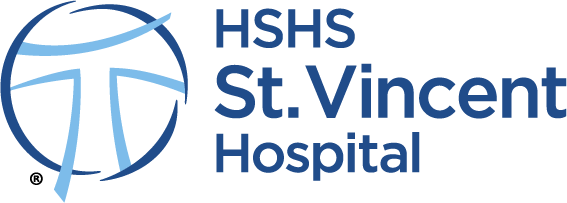Do not ignore the signs and symptoms of stroke
May 15, 2024
May is National Stroke Awareness Month
GREEN BAY, Wis. – Every 40 seconds in the United States, someone has a stroke according to the Centers for Disease Control and Prevention (CDC); and every four minutes, someone dies. Additionally, the American Heart Association has found the rate of stroke has been steadily rising among Americans younger than 49 for the past 30 years.
A stroke occurs when blood flow to the brain is interrupted by either a clot (ischemic stroke) or a break in a blood vessel (hemorrhagic stroke). Seeking immediate medical attention for a stroke is critical as every minute the brain is without blood flow, the greater risk for brain damage, permanent disability or death. The onset of any of the following symptoms requires immediate attention, starting with a call to 911. Remember the phrase/acronym BE FAST:
- B – Balance difficulty: Sudden loss of balance or coordination, weakness or dizziness
- E – Eye changes: Sudden onset of vision changes in one or both eyes
- F – Face drooping: Sudden onset of facial drooping, usually on one side
- A – Arm weakness: Sudden weakness or numbness in the arm, leg or face, usually on one side of the body
- S – Speech difficulty: Sudden onset of trouble speaking or difficulty in understanding speech
- T – Terrible headache: Sudden onset on severe headache with no known cause
Intravenous medication can be used in some instances to treat stroke, while others require an interventional, surgical procedure. Dr. Alison Meyer and Dr. Collin Torok, Prevea Health neurointerventional surgeons, perform these procedures at HSHS St. Vincent Hospital in Green Bay – a certified, Comprehensive Stroke Center. Drs. Meyer and Torok, and the hospital’s dedicated stroke team, use Bi Plane Angiography technology that provides 3-D, high-resolution images of the patient’s arteries and vessels, allowing them to pinpoint and quickly remove clots or repair ruptured vessels.
“Minutes and hours after a successful clot retrieval procedure, patients may be walking, talking and symptom free - even after serious stroke symptoms,” says Dr. Meyer. “The sooner a patient can be brought to a hospital, the better chance they have of a successful recovery.”
“I often find myself thanking my patients’ families because they are the ones who noticed their loved one was having a stroke and called 911,” says Dr. Torok. “The clock truly does start ticking as soon as a stroke happens and the faster a stroke victim can get to the hospital the better outcomes they have.”
Drs. Meyer and Torok recently shared more insights about being on the front lines of stroke, in a new episode of Prevea Health’s podcast, Plug in to Health. It is available now wherever you listen to podcasts and at: www.prevea.com/podcast.
HSHS St. Vincent Hospital’s certified Comprehensive Stroke Center, has become the region’s trusted leader in aneurysm treatment and stroke care. Today, HSHS St. Vincent Hospital is among the top three hospitals in Wisconsin performing the largest number of thrombectomies, which is a minimally invasive procedure for blood clot removal. This specialized treatment is a proven method to reduce risk of death and permanent disability in stroke patients.
In the Green Bay region, no other health system offers the range of stroke care services HSHS St. Vincent Hospital and Prevea Health provides. The range of specialized stroke care offerings means patients who suffered from a stroke not only get the immediate urgent care they deserve, but also that HSHS St. Vincent Hospital and Prevea’s teams are equipped to walk patients through the process of recovery, following a stroke.
There are numerous risk factors for stroke including age, genetics, gender and race, which cannot be controlled. However, there are several factors that increase the risk of stroke and can be controlled, including: Smoking, high blood pressure, alcohol consumption and illegal drug use, stress, diabetes, obesity, inactivity, unhealthy diet and abnormal cholesterol.
For those diagnosed with a vascular condition that causes complete or partial blockage of the arteries, surgical preventive treatment options may be available based on the severity of blockage. Consult with your primary care physician or a Prevea vascular surgeon to learn more.
For more information, please visit: www.prevea.com/stroke.
###
About Hospital Sisters Health System (HSHS)
HSHS St. Vincent Hospital in Green Bay, Wis. is part of Hospital Sisters Health System (HSHS), a Catholic health care ministry founded in 1875. Dedicated to our Mission to reveal and embody Christ’s healing love for all people through high-quality Franciscan health care, HSHS clinicians provide exceptional care centered on the whole person. Based in Springfield, Illinois, HSHS employs more than 11,000 colleagues who provide care in 13 acute-care, children’s and critical-access hospitals and home health and hospice programs in Central and Southern Illinois and Eastern Wisconsin. HSHS is aligned with more than 1,000 primary and specialty physicians and advanced practitioners through its owned affiliates HSHS Medical Group and Prairie Cardiovascular and its partnership with Prevea Health. For more information about HSHS, visit hshs.org
About Prevea Health
Prevea Health is a community of passionate and accomplished physicians, caregivers and staff working together to provide exceptional health care. Patients have trusted Prevea with their medical care needs since 1996 when the organization was founded in Green Bay, Wis. Today, Prevea provides primary care and a wide range of specialty medical care in clinic, hospital, and workplace settings across Northeast Wisconsin. It is partnered with Hospital Sisters Health System (HSHS) which operates hospitals in Wisconsin. For more information about Prevea Health, visit www.prevea.com

Media Contact
Angela Deja
Director, Public Relations and Communications